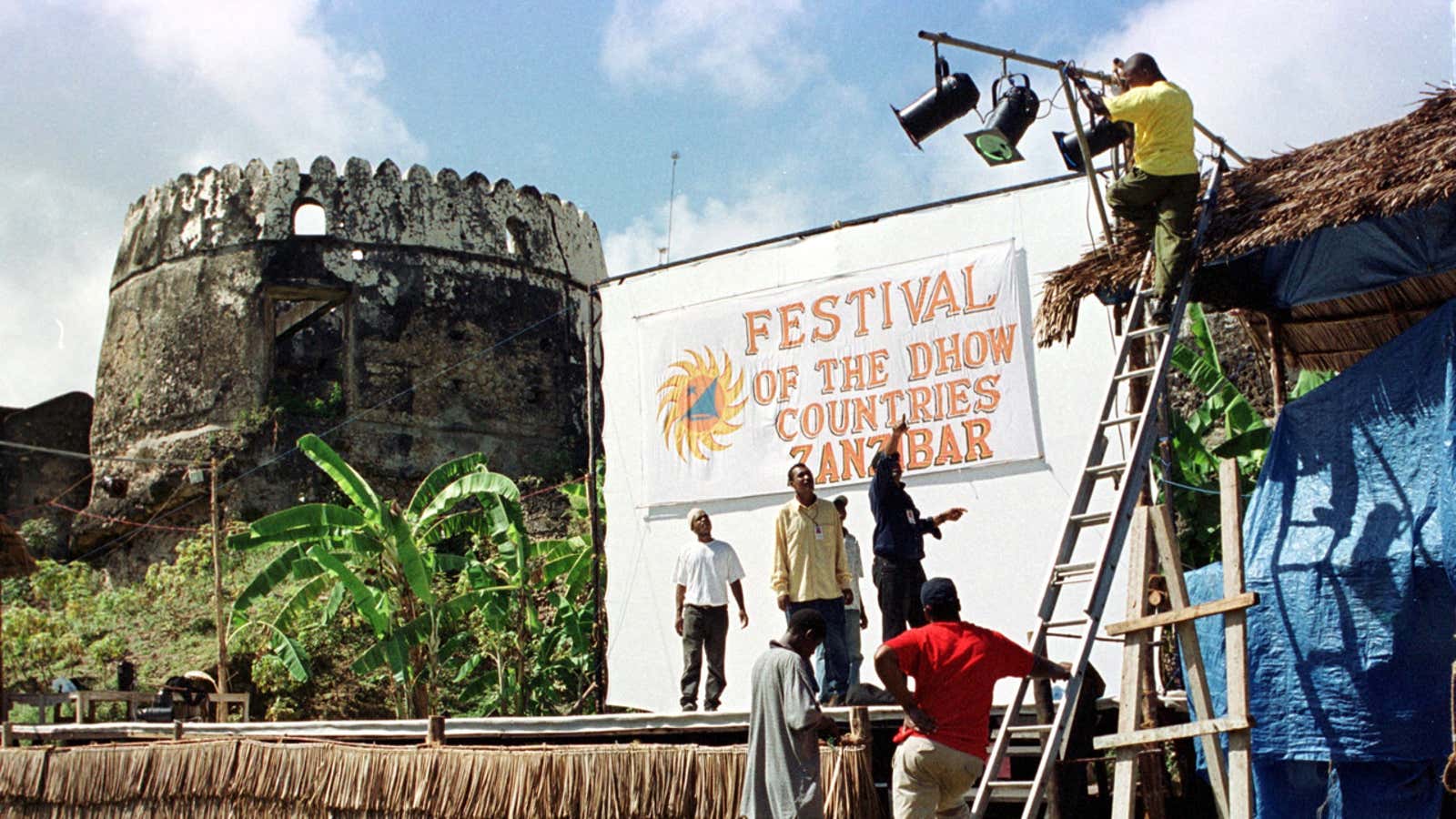One of Africa’s most celebrated film festivals is embracing the small screen. For the first time, the Zanzibar International Film Festival is including television and web series.
This year, the festival will include three days of series screenings, the festival said in a statement on June 12. It’s a testament to the golden age of television and it signals the development of African television, even as cinema has struggled.
The straight-to-DVD model that has propelled the Nigerian film industry’s growth has also lent itself to low-budget local telenovelas from around the continent. And just as Nollywood’s success with street corner vendors has reinvigorated Nigerian filmmakers to create bigger-budget blockbusters, the television industry has also begun to see slicker production.
“More and more in the film industry, and not only in Africa, it is said the television is the future of cinema,” said festival director Fabrizio Colombo, adding that the film festival wanted to acknowledge the role television has played in the African entertainment landscape.
The film organizers said they received dozens of entries, and chose 20 to showcase. The Middle East and Africa content distributor DISCOP and the US-based Africa Channel are partners in the initiative, meaning the shows will be seen beyond the festival.
The series selected challenge hackneyed representations of Africa today. Before 30 follows a couple of young Lagosian newlyweds as they discover that the race toward marriage before their 30th birthdays is filled with obstacles. The adorable Tales of Shaa from Zimbabwe is an animated children’s series that brings folklore to a new generation.
The rest of the 21-year-old festival’s selection, which runs from July 7 to July 15 in Zanzibar’s picturesque Stone Town, speaks to the courage African filmmakers have shown in taking back their own stories, the organizers said.
“Surely, some films selected will shake the power systems and old mentalities,” said Colombo, “and that is what cinema is all about, challenging perceptions and imagining a different world.”
This all takes place in a country that is increasingly cracking down on freedom of speech. Tanzania’s government has passed new regulations requiring that the state certify all bloggers and charge an annual license fee of over $900.
The organizers were heartened by the increased numbers of film entries from East Africa—specifically Uganda, Kenya and Tanzania—all countries where the arena for free creative expression is narrowing, even as African stories find new audiences.
